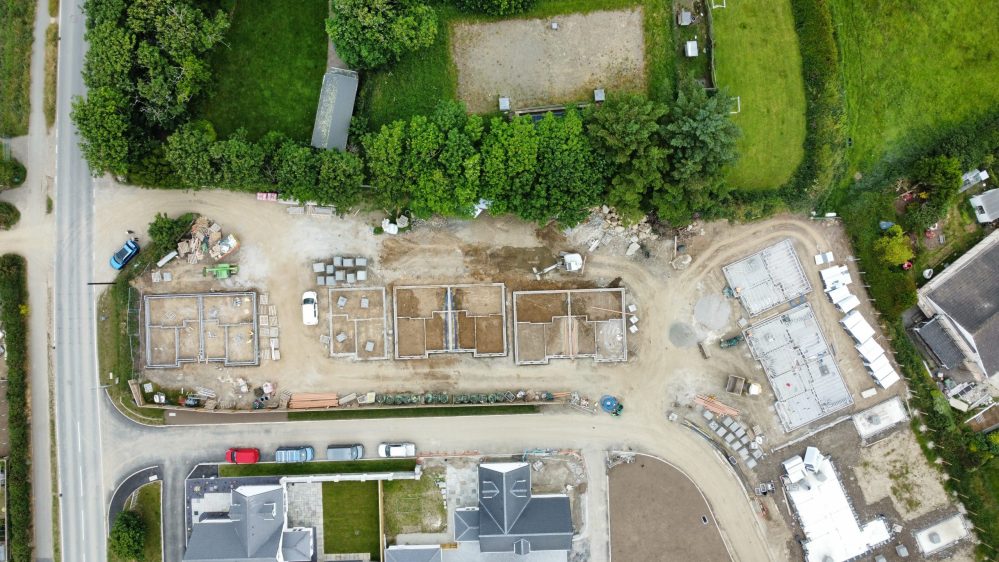News
Public advised to avoid rail travel as biggest strike in 30 years about to start

THE BIGGEST rail strikes in three decades are due to start on Monday night (Jun 20), bar an unlikely late breakthrough in talks, with trains cancelled across Great Britain for much of the week.
Talks between senior rail industry figures and union leaders were taking place through the day to try to avoid industrial action, although with little optimism from either side or government that any agreement could be reached.
The first of three 24-hour walkouts by 40,000 RMT members, including signallers, maintenance and train staff, will start just after midnight on Tuesday morning, with only one in five trains running on strike days and halting services altogether in much of northern and south-west England, Wales and Scotland.
Only four rail routes will be operating in Wales on the three strike days and at a reduced service. Services will start at 7am and stop at 6pm.
These include:
• An hourly service between Radyr and Treherbert
• An hourly service between Radyr and Aberdare
• An hourly service between Radyr and Merthyr Tydfil (apart from on Saturday, June 25, when it’s between Radyr and Pontypridd)
• Reduced services on the mainline between Cardiff and London from 7am to 6pm. The last train from London is at 4.27pm.
Major train stations including Swansea, Bridgend, Carmarthen, Llanelli, Aberystwyth, Holyhead and Llandudno will have no services. There will only be limited services from Cardiff, Newport, Pontypridd and stations on the Valley lines to Merthyr, Aberdare and Treherbert.
Full details of the timetable for the days of the strike have been published.
Customers can find these on the TfW, Traveline and National Rail websites using the journey planners.
Customers with existing non-season tickets valid for travel from Tuesday 21 June to Saturday 25 June can use those tickets anytime between Monday 20 June and Monday 27 June. Alternatively, customers can claim a full refund, with no admin fee charged. Season ticket holders can apply for compensation via Delay Repay.
In the meantime, TfW has suspended sales of Advance tickets for the first three strike dates in order to minimise the number of people disrupted. Customers are advised to continue to check the TfW or Traveline websites, and those of other operators, for updates.
Transport for Wales says passengers should not travel by train during the three strike days on June 21, 23 and 25. There are no strikes on June 20, 22, 24 and 26 but Transport for Wales said people should only travel if essential as services would still be affected.
Staff working for Transport for Wales are not affected by the strike. But RMT staff working for Network Rail which manages the infrastructure across the UK are going on strike meaning that services across the UK are all affected.
Only services in Transport for Wales routes in one part of the Valleys and services on the mainline into Wales from London going as far as Cardiff will be operating. There will be no services west of Cardiff.
The strikes, over pay and attempts to reform the rail industry with post-Covid work patterns hitting commuter revenues, will cause six days of disruption, with trains limited to one an hour between 7.30am and 6.30pm on major intercity and urban routes. Services will start later and be reduced on subsequent days.

The action is being taken by Network Rail employees and onboard and station staff working for 13 train operators in England. The RMT said thousands of jobs were at risk in maintenance roles and that ticket office closures were planned, on top of pay freezes during a time of high inflation.
The walkout by signallers will have most impact, particularly in rural areas, leading to line closures in places such as Wales, where there is no direct dispute with the train operator. Most operators have told passengers to travel only if necessary on strike days. Northern Rail has advised passengers not to travel for the whole week.
While Conservatives have attempted to associate the union-backed Labour party with the strikes, Labour has pointed out that the transport secretary, Grant Shapps, and other ministers have refused to take part in talks.
Unions asked to meet ministers, saying the Treasury and Department for Transport control contracts and funding. Shapps said it was up to employers to negotiate, although train operating companies have been told they cannot offer pay rises, according to industry insiders and unions.
The shadow transport secretary, Louise Haigh, speaking on the BBC Today programme on Monday, said it was imperative that the government stepped in. She said: “Not only are they boycotting the talks, they are actually hobbling them .”
However, Simon Clarke, the chief secretary to the Treasury, told the BBC: “There’s no point giving false hope, if you like, that these strikes can be avoided. At this stage it is likely that they will proceed.”
The business secretary, Kwasi Kwarteng, is set to table legislation to allow agency workers to step in during strikes, which could be enacted by late July to apply to future industrial action. The RMT said it would be impossible to draft in people to replace skilled rail workers and a spokesperson said it was “playing to the gallery”.
Shapps said on Sunday it was “crazy” to suggest that the Tories wanted rail unions to go on strike, after Labour accused the government of encouraging the walkouts to go ahead in order to stoke division. He said the strikes were “unnecessary” and a result of trade union leaders “gunning for” a fight, accusing the RMT of planning to “punish millions of innocent people”.
Last week, Shapps told rail staff they risked “striking yourself out of a job”. Network Rail bosses estimate the stoppages will cost the industry about £150m in lost revenue.
Talks have been ongoing between Network Rail and the RMT but bosses admitted there was little hope of a breakthrough.

The walkouts are on 21, 23 and 25 June and a special timetable will be in operation from Monday, with some evening services curbed, until Sunday. About 20% of trains will run on mainlines and urban areas.
Adding to the commuter misery, a separate London Underground strike will also bring much of the capital’s transport to a halt on Tuesday. About 10,000 members of the RMT will walk out for 24 hours, closing most tube lines. Transport for London has advised people to avoid travelling on all of its services if possible, with buses likely to be crowded and slow on jammed roads.
The London overground and Elizabeth lines will also continue to be affected by the national rail strike throughout the week.
Other unions may join the rail strike later in the summer, in a move that could halt services altogether. The TSSA union, which represents control room staff and managers who step in to run contingency signalling, is balloting members at Network Rail and announced strike votes at more train operators last week.
Community
Public reminded to stay away from Ward’s Yard and Criterion Quay

THE PORT of Milford Haven is reminding members of the public to stay away from Ward’s Yard in Milford Haven and Criterion Quay (sometimes known as the offshore jetty) in Pembroke Dock due to concerns over public safety.
Despite significant security measures, people continue to access the sites illegally, ignoring and sometimes damaging the onsite signage and fences.
Niall Yeomans, Head of Health, Safety and Security at the Port of Milford Haven said: “Safety is our key priority. Members of the public are continuously putting themselves and members of our team at risk of serious harm by trespassing in these areas.”
“Both Ward’s Yard and Criterion Quay are unsafe for public access. They are isolated areas next to deep water and are susceptible to slips, trips and falls.”
Both sites are owned by the Port of Milford Haven and are private property. Anyone found onsite without consent is trespassing, and any criminal damage could result in prosecution.
Anyone who sees any suspicious activity at Ward’s Yard or Criterion Quay is asked to contact Dyfed Powys Police on 101 urgently.
Crime
‘Sophisticated’ organised crime gang trafficked cocaine and cannabis to Aberystwyth

FIVE people have been found guilty or admitted to conspiring to supply cocaine and cannabis as Dyfed-Powys Police continues its efforts to dismantle organised crime gangs.
Officers seized cocaine with a street value of more than £400,000 from gang members, who continually changed tactics to avoid arrest.
Six defendants have appeared in court in the latest phase of Dyfed-Powys Police’s Operation Burleigh, which sought to disrupt the trafficking and onward supply of class A and B drugs into Aberystwyth, with all but one admitting their charges or being found guilty by a jury.
This brings the total number of people awaiting sentence under the operation to 15.
The court heard that officers from Dyfed-Powys Police’s Serious and Organised Crime Team and Ceredigion Priority Policing Team led the investigation into the OCG, which was described as ‘sophisticated, well-organised and evolving’.
Detective Sergeant Steven Jones said: “This conspiracy operated on a County Lines model, where controlled drugs are trafficked into a smaller rural town from a larger city, and the operation is controlled by one or more ‘drugs lines’.
“In this case there were a total of four lines controlling the supply of cocaine and cannabis within Aberystwyth.
“The conspirators frequently evolved their actions to frustrate the authorities and evade capture.”
The OCG embedded members were mainly asylum seekers brought to Aberystwyth by Toana Ahmad and another man who remains outstanding, with the sole purpose of dealing drugs. The drug lines were initially based in Swansea, and later in areas of Birmingham.
Three properties – on Terrace Road, Alexander Road and Parc Graig Glas – were identified early in the investigation as being used to house the OCG members embedded in Aberystwyth. Substantial amounts of cash, controlled drugs and weapons were recovered from these properties, and from the people found inside.
When arrests were made, the gang changed its tactics. Drugs began to be supplied from vehicles, and OCG members stayed in guest houses to avoid detection.
DS Jones added: “Trusted couriers were employed to transport drugs to Aberystwyth and cash back to Birmingham or Swansea. A number of vehicles, including taxis, were used as the gang attempted to avoid detection along the route, while trains were also taken when courier cars were stopped by officers.”
In June 2023, two vehicles travelling from the West Midlands towards Aberystwyth were stopped by police on consecutive days. A black sock was uncovered in the engine of the first car, which was found to contain 82g of high purity cocaine divided into 169 grip seal plastic bags.
Davinder Singh, who previously pleaded guilty to conspiracy to supply class A and class B drugs, was the driver of the second vehicle, which was a taxi. A blue plastic bag was seen falling out of his shorts, which contained over 81g of high purity cocaine divided into 167 grip seal bags.
DS Jones said: “On the basis that the amounts of cocaine transported over the 37 couriers over the course of the conspiracy period were similar, over 3kg of cocaine would have been conveyed to Aberystwyth from Birmingham.
“This equates to class A drugs with a potential street value of over £308,950. In addition to this, class A drugs were seized from individuals and addresses with a potential street value of £103,445, along with cash totalling £11,687.
“A number of teams and departments across Dyfed-Powys Police, from analysts, CCTV operators and priority policing teams, to CAB, the Technical Support Unit, Economic Crime Team and Force Intelligence Bureau all assisted in dismantling the OCG from top to bottom.
“Their dedication and relentless efforts have assisted in making Aberystwyth a safer place to live without the threat and harm of drugs being made easily available on the street.”
After a seven-week trial at Swansea Crown Court earlier this year, the following three defendants were found guilty for their parts in the conspiracy:
- Toana Ahmad, aged 33, of Lee Gardens in Smethwich, West Midlands
- Barzan Sarhan, aged 31, of no fixed address
- Ahmed Piro, aged 26, of no fixed address
The jury failed to reach a verdict on two defendants during the earlier trial. They have been subject to a retrial starting on July 1, with the following outcomes:
- Hawre Ahmed, aged 35, of Pinderfields Road, Wakefield, West Yorkshire, was found guilty by the jury of conspiracy to supply Class A and B controlled drugs.
- Diar Yousef Zeabari, aged 35, of Flat 5, 41 Bryn Road, Swansea, was found not guilty of conspiracy to supply Class A and B controlled drugs.
Karwan Karim, aged 39 of 125 Griffith John Street, Swansea, also stood trial, and pleaded guilty to conspiracy to supply Class A and B controlled drugs on day three.
In addition to the OCG members found guilty during the most recent trials, the following have previously pleaded guilty to charges of conspiracy to supply class A and class B drugs under Operation Burleigh:
- Davinder Singh, aged 36, of Huntingdon Road, West Bromwich
- Daban Khalil, aged 23, of Streetly Road, Birmingham
- Kastro Omar, aged 30, of Junction Road, Northampton
- Karwan Jabari, aged 26, of Weedon Close, Northampton
- Walid Younis Abdal, aged 34, of St Anne’s Road, Doncaster
- Saman Aziz, aged 41, of Kirk Road, Merseyside
- Adel Mustafa, aged 39, of Hubert Road, Newport
- Charlotte Roberts, aged 21, of Sutton Hill, Telford
The following have previously pleaded guilty to conspiracy to supply class A drugs:
- Akasha Smith, aged 24, of Third Avenue, Aberystwyth
- Luqman Jarjis, aged 21, of Wake Green Road, Birmingham
News
Community asked for views on allocation of new St Davids homes

THE FIRST phase of Pembrokeshire County Council’s Glasfryn housing development in St Davids is progressing well with the second phase also underway.
The development being built by GRD Homes Ltd, began in November 2023, with a first phase completion date of Winter 2024 looking hopeful, ahead of the scheduled plans.
The first phase consists of seven properties, including a mixture of one and two bedroom bungalows
As completion draws closer the properties will be advertised via Pembrokeshire Choice Homes.
Ahead of this, the Council’s housing team will be holding community engagement on the 13th August 2024 at the Ty’r Pererin Centres, Quickwell Hill, St Davids, SA62 6PD, 5pm-7pm.
This will be a chance for officers to liaise with the local community about the allocation process for these properties.
Glasfryn’s second phase is well underway, with the initial groundwork already completed. This phase includes a further 11 two bedroom bungalows, with a completion date in late 2025.
These bungalows will meet the latest Welsh Government’s Development Quality Requirement, and will be energy efficient, built to EPC A specification and include solar panels to help tenants with running costs.
The Glasfryn development is funded in partnership with Welsh Government.
Cabinet Member for Housing Cllr Michelle Bateman said: “We are really keen to work with the community on a local lettings policy for these new properties, as we have done for our developments in other parts of the County.”
If you have any queries please email the Customer Liaison Team on [email protected], phone them on 01437 764551, or visit Housing’s Facebook page.
-

 Education5 days ago
Education5 days agoMilford Tesco worker achieves Oxford dream and lands top legal job
-

 Crime4 days ago
Crime4 days agoHaverfordwest man admits having nearly 1000 child and animal images
-

 Crime4 days ago
Crime4 days agoYouth set to appear in court over serious sexual offences
-

 Crime4 days ago
Crime4 days agoPolice investigating after man injured during altercation in cemetery
-

 Education4 days ago
Education4 days agoPupils delight in ice cream treat from Pembrokeshire’s number one van
-

 Crime4 days ago
Crime4 days agoTown centre ‘stinking of skunk’ as police strip cannabis farm
-

 Crime3 days ago
Crime3 days agoFag-butt police court summonses spark debate in Pembrokeshire
-

 News6 days ago
News6 days agoProposal to give firefighters a council tax discount to go to Cabinet










































